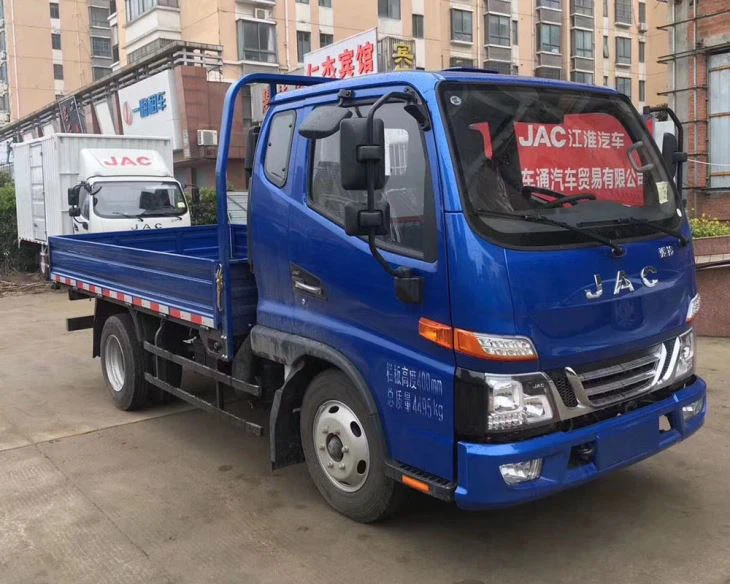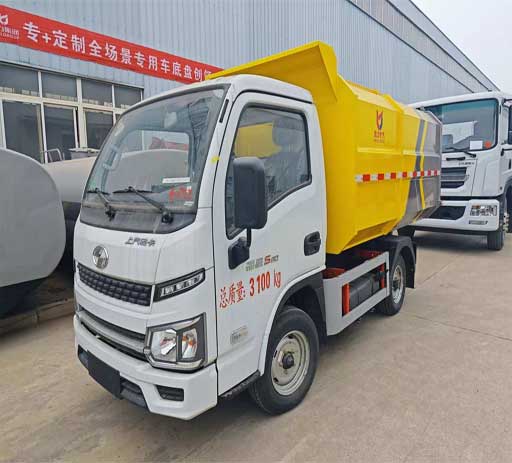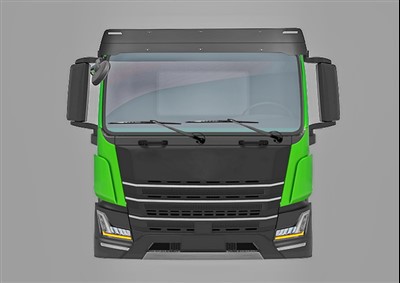Non CDL Trucks for Sale: A Comprehensive Guide

When it comes to transportation and logistics, non-CDL trucks are increasingly gaining attention from small business owners and individuals looking for reliable vehicles without the complexities of commercial driver’s licensing. In this article, we will explore the world of non-CDL trucks for sale, covering various aspects including types, advantages, purchasing tips, and more.
Understanding Non CDL Trucks
Non-CDL trucks are vehicles that do not require a Commercial Driver’s License (CDL) to operate. Typically, these trucks have a gross vehicle weight rating (GVWR) of 26,000 pounds or less. This means they can handle a variety of hauling and transport tasks while being accessible to a larger pool of drivers. Knowing the ins and outs of non-CDL trucks can help you make informed decisions regarding your vehicle needs.
Types of Non CDL Trucks

Non-CDL trucks come in a variety of configurations suited for different purposes. Here are some common types:
1. Pickup Trucks
Pickup trucks are versatile and widely used for personal and commercial purposes. They typically have a truck bed in the back, allowing for convenient cargo transport.
2. Box Trucks
Box trucks feature a large, enclosed cargo area, ideal for moving furniture, appliances, or other goods. They often come in various sizes, providing options for light to moderate hauling tasks.
3. Cargo Vans
Cargo vans are similar to box trucks but smaller in size. They are perfect for urban deliveries or businesses requiring transport for goods without needing a bulky truck.
4. Stake Trucks
Stake trucks have side rails or stakes and are perfect for carrying bulky or uneven loads. They offer flexibility in load size and shape.
5. Flatbed Trucks
Flatbed trucks feature an open design that allows for easier loading and unloading of oversized items. They are excellent for transporting construction materials or large machinery.
Advantages of Non CDL Trucks
There are several advantages to using non-CDL trucks, making them appealing for various drivers and businesses:
1. Ease of Operation
Since a CDL is not required, more individuals can operate these vehicles, making them accessible for small businesses and independent contractors.
2. Cost-Effective
Non-CDL trucks generally have lower purchase prices, lower insurance costs, and reduced taxes compared to larger commercial vehicles.
3. Versatility
These trucks can fulfill a wide array of functions, whether for business or personal use, ranging from deliveries to moving goods.
4. Flexibility in Usage
Many non-CDL trucks offer a variety of configurations and features, allowing users to select vehicles tailored to their specific needs.
5. Suitable for Smaller Loads
Non-CDL trucks are ideal for transporting smaller loads or in urban environments where maneuverability is important.
How to Choose the Right Non CDL Truck
Selecting the right non-CDL truck involves considering various factors. Here are some tips to guide you:
1. Determine Your Needs
Evaluate your specific transportation needs, such as the type of cargo, frequency of use, and the environment in which you will be driving the truck.
2. Research Truck Models
Different manufacturers offer unique features, engine types, and fuel efficiencies. Consider researching models from popular brands such as Ford, Chevrolet, GMC, and Ram.
3. Check the Vehicle Weight
Ensure that the GVWR is within the non-CDL limits to avoid any licensing issues. Review the manufacturer’s specifications carefully.
4. Assess Fuel Efficiency
Evaluate different truck options based on fuel efficiency. Choosing a vehicle with better mileage can lead to significant savings over time.
5. Consider Maintenance Costs
Research maintenance history and costs associated with each model. Understanding the long-term commitment involved in vehicle upkeep can impact your choice.
6. Look for Warranty Options
New trucks often come with warranties, while used vehicles may have limited coverage. Make sure to weigh the warranty options and consider adding an extended warranty for greater peace of mind.
Where to Find Non CDL Trucks for Sale
Finding non-CDL trucks for sale can be done through various channels. Here are the most common:
1. Online Marketplaces
Websites like AutoTrader, Cars.com, and Craigslist offer a broad selection of non-CDL trucks, allowing you to search by model, price, and location.
2. Dealerships
Local and national auto dealerships often have new and used non-CDL trucks. Visiting dealerships gives you the chance to speak with knowledgeable sales staff who can answer specific questions.
3. Auctions
Government and commercial vehicle auctions can be excellent sources for affordable non-CDL trucks. Make sure to inspect vehicles thoroughly before bidding.
4. Classified Ads
Many regional newspapers and community bulletins feature classified ads for trucks. Check these listings, especially for local deals.
5. Social Media and Forums
Platforms like Facebook Marketplace or specialized forums can connect you directly with sellers. Engaging with community groups can also yield recommendations and advice.
Financing Options for Non CDL Trucks
When purchasing a non-CDL truck, financing is often necessary. Here are common options to consider:
1. Bank Loans
Traditional banks usually offer competitive rates for vehicle loans. Check with your bank regarding their vehicle financing options.
2. Credit Unions
Credit unions may offer lower interest rates, making them a great choice for financing a truck purchase.
3. Dealer Financing
Some dealerships provide financing options directly through third-party lenders. Compare interest rates and terms before proceeding.
4. Leasing
Leasing can be an attractive option for individuals who plan to use a truck short-term. However, review mileage limits and fees associated with wear and tear.
5. Personal Loans

If you prefer a less traditional route, personal loans can also be utilized to finance the purchase without needing collateral.
Maintaining Your Non CDL Truck
To extend the lifespan of your non-CDL truck and maintain its performance, regular maintenance is essential. Here are some practical tips:
1. Regular Oil Changes

Changing the oil according to the manufacturer’s recommendation is critical to keeping your engine running smoothly.
2. Tire Care
Check tire pressure monthly and rotate tires regularly to ensure even wear and prolong tire life.
3. Brake Inspections
Monitor brake performance and have them inspected at regular intervals to ensure your safety on the road.
4. Keep It Clean
Regularly wash and wax your truck to protect the finish and prevent rust and corrosion.
5. Follow Maintenance Schedules
Review and adhere to the manufacturer’s maintenance schedule to keep your truck in optimal condition.
Insurance for Non CDL Trucks
Insurance is a crucial aspect of vehicle management. Here’s what you need to know:
1. Assess Your Coverage Needs
Consider factors like usage, driver experience, and the vehicle’s value when selecting insurance coverage.
2. Shop Around for Quotes
Contact multiple insurance providers to compare quotes. Look for discounts based on safe driving history or bundling policies.
3. Understand Policy Types
Liability, collision, and comprehensive coverage are key components. Make sure to choose a policy that meets your specific needs.
Frequently Asked Questions (FAQs)
1. What is the maximum weight for a non-CDL truck?
The maximum weight is generally a Gross Vehicle Weight Rating (GVWR) of 26,000 pounds or less.
2. Can I drive a non-CDL truck without a special license?
Yes, you can drive a non-CDL truck with a standard driver’s license in most states.
3. Are non-CDL trucks suitable for commercial use?
Yes, they can be used for commercial purposes, as long as the weight and usage restrictions are followed.
4. What types of cargo can be transported in a non-CDL truck?
They can carry various items such as furniture, appliances, construction materials, and more, as long as weight limits are observed.
5. Where can I find non-CDL trucks for sale?
You can find them through online marketplaces, local dealerships, auctions, and classified ads.
6. What financing options are available for non-CDL trucks?
Options include bank loans, credit unions, dealer financing, leasing, and personal loans.
